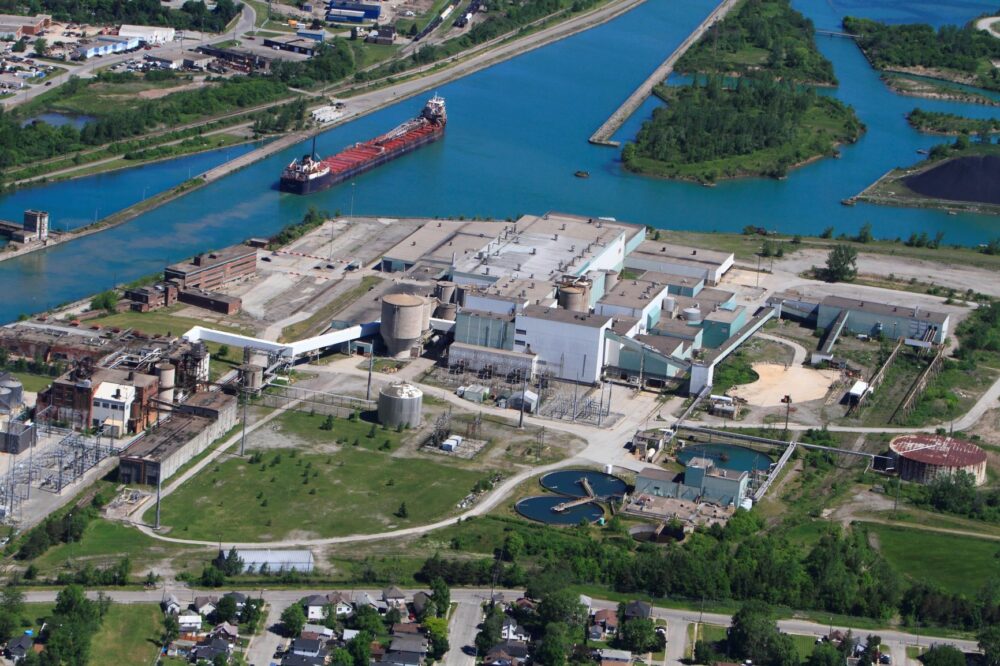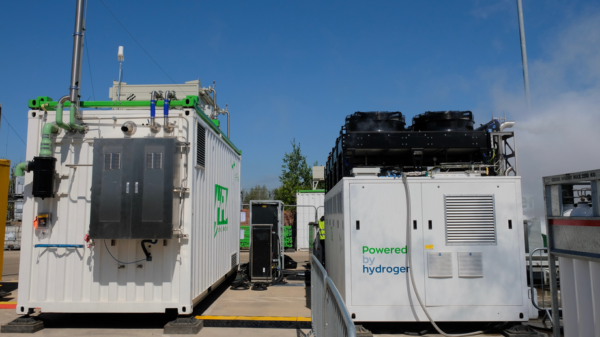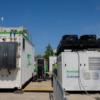A Toronto-based ‘clean’ tech company and a Northern Ontario First Nations management collective have joined forces on a venture to convert waste and wood into sources of renewable energy.
CHAR Technologies (TSXV: YES) and the First Nations cooperative Lake Nipigon Forest Management Inc. (LNFMI) signed a memorandum of understanding (MOU) late last month for the development and operation of a wood waste and residues to renewable natural gas and biocarbon facility in the Lake Nipigon Region of Northern Ontario.
CHAR Technologies uses a unique high temperature pyrolysis technology that can convert wood and organic waste into two types of renewable energy: renewable natural gas (RNG) or green hydrogen, and a solid biocoal.
The proposed Lake Nipigon facility will use two of CHAR’s commercial-scale high temperature pyrolysis kiln systems to convert 75,000 tonnes of wood waste and residuals into 500,000 gigajoules of renewable natural gas (RNG) and 10,000 tonnes of biocarbon per year. The facility is expected to start operating in 2025. The same two-kiln structure is currently being constructed in Thorold, Ontario and is in an advanced stage of completion.
“This opportunity will provide employment for the memberships of the four First Nation partners, as well as a steady, yearly revenue stream for the continual development of our communities,” said Theresa Nelson, LNFMI president.
“It will also find a home for wood waste and residues from the Lake Nipigon Forest, ensuring an environmentally sustainable solution for the Region as a whole.”

Conversion machine at Thorold, Ontario. Image via CHAR Technologies.
Read more: NevGold to hit the ground running at Limousine Butte in 2023: Caesars Report
Read more: NevGold starts drilling at Nutmeg Mountain property
Partnership creates full time employment opportunities
The RNG produced will be sold to natural gas utilities in the region, while the biocarbon will replace metallurgical coal for Canadian steel manufacturers. This partnership will provide long-term wood waste feedstock security and create local full-time employment opportunities while reducing the dependency on petroleum-based fuels.
“With Budget 2023 calling for increased production of Canadian biofuels, this project couldn’t come at a better time,” said Andrew White, CHAR CEO.
“With LNFMI managing our wood residuals and wastes supply chain, we can focus on delivering what we do best, supporting Canada’s green energy transition.”
Under the MOU, voting rights in the project entity will be split between LNFMI and CHAR on a 51 per cent to 49 per cent basis, and each party will appoint two directors.
LNFMI will be responsible for sourcing and managing the delivery of the feedstock, while CHAR will be responsible for sales and marketing of the products produced. Each party will be paid customary fees for their services during development and operation.
Successful implementation of the project would have numerous social, economic, and environmental benefits for the region and the Province of Ontario.
CHAR Technology shares dipped 5.4 per cent to trade at $0.67 on the TSX Venture Exchange.
.
Follow Joseph Morton on Twitter
joseph@mugglehead.com














